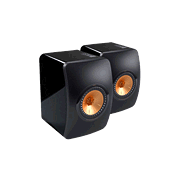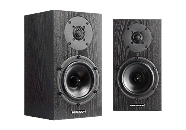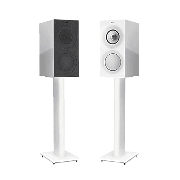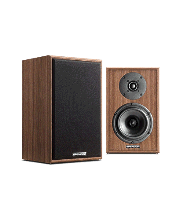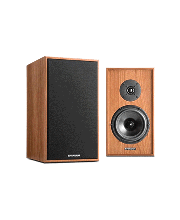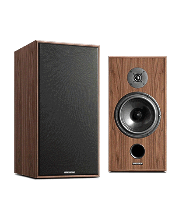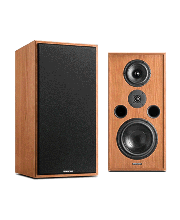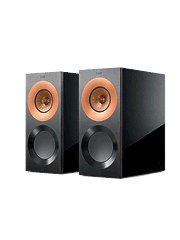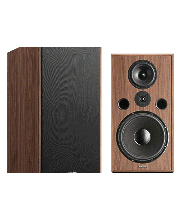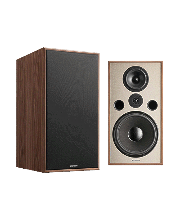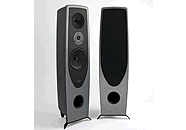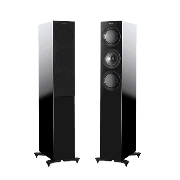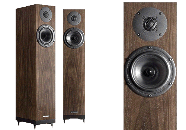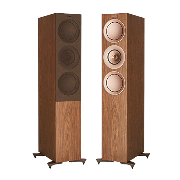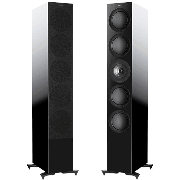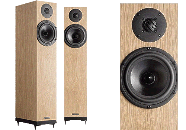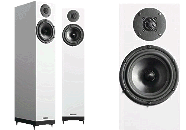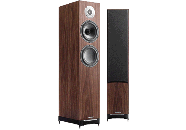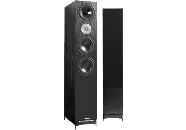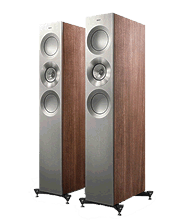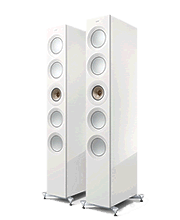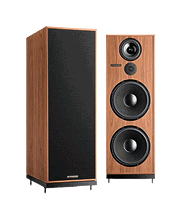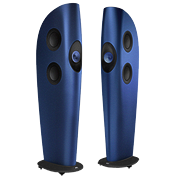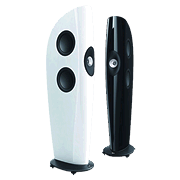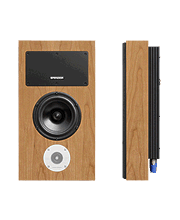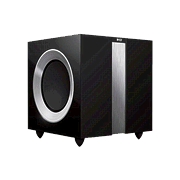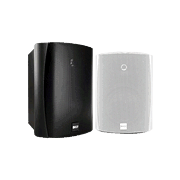Loudspeakers@kemela
Loudspeakers are at the end of the sound reproduction chain and transform the electrical signal passed from source material and amplifier into sound pressure. Information lost at the source can not be restored by loudspeakers and the design of the amplifier will determine how well the loudspeakers generate sound pressure. Better amplifiers will push more power into loudspeakers than amplifiers with reduced outputs into reactive loudspeaker loads. There is a relationship between loudspeaker size, bass extension and sensitivity/effeciency and loudspeakeres need to be appropriate for the size of the room.
Loudspeakers in your space
Compact "bookshelf" and stand-mounted speakers work well in small/medium-sized rooms. It's easier to make them rigid and the ratio of direct sound from the driver(s) versus the cabinet
is higher reducing the impact of unwanted resonating 'colorations'. However, dynamic range is restricted by power handling of smaller drivers and air compression in a smaller box which limits bass extension and sensitivity.
A subwoofer can't expand lower midrange frequency dynamic restrictions and when a subwoofer is dialed in at a higher frequency it will be harder to blend in.
Floorstanding speakers suit larger rooms because they offer more bass extension, power handling and efficiency. Downsides are more cabinet colorations and amplifiers that can handle the extra load of
multiple drivers with larger heavier diaphragms. It's hard to predict how custom in-wall installed speakers - even high-end ones - will sound until they have been fitted whereas
tower or stand mount speakers can be positioned for optimal sound or moved to anohter room or location.
On-wall loudspeakers can help when there is limited floor space.
Sound from overhead speakers is filtered by our ear lobes and subsequent neural processing and will be quite different from 'head-on' sound.
Why do speakers cost so much?
The cost of raw materials (especially exotic real wood veneers and magnetic materials), labor, shipping and warehousing has meant that the cost of loudspeakers has steadily risen more so than electronic components. For speakers selling at lower price points, the designer has to decide between the cabinet size and finish, and the driver and cross-over quality. Companies that make their own cabinets and drivers with bespoke cross-over components will have better consistency from speaker to speaker ensuring stable stereo images as the sound doesn't bounce from one side to side from different frequency notes having uneven amplitudes. Prolonged in depth subjective listening is required as objective measurements don't tell the whole story.
Why so many speakers from the UK?
The UK has always been a center of excellence for loudspeaker design. This is due to high broadcasting standards, exposure to musical education in schools from an early age, and a supply of dedicated acoustical engineers graduating from universities offering specialized education in loudspeaker design. Specialized manufacturing technology development has accelerated in Europe and the West particularly in technology parks which offer cooperative endeavors sharing modern materials and fabrication methods across different industries.
-
None
